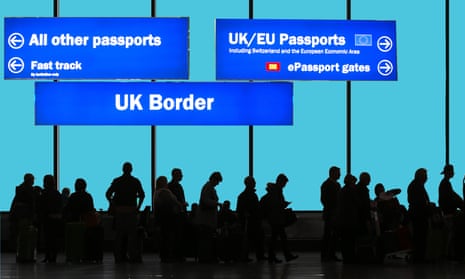Today is International Translation Day. Look at any bookshop bestseller shelf in the UK and you’ll see translated names everywhere: Elena Ferrante, Karl Ove Knausgaard, Haruki Murakami, Swedish names all over crime fiction. Recent sales figures seem to suggest that the British public has steadily become more open to European and international authors: according to Nielsen, which undertook research for the International Man Booker prize this year, the number of translated books bought in Britain increased by an astounding 96% between 2001 and 2015. Translated fiction sells better, overall, than English literary fiction and made up 7% of all UK fiction sales in 2015.
But when you examine what is translated into English, only 1.5% of all books published in the UK are translations. Compare that to Germany (a bigger book market than the UK), France or Italy, where translated fiction is 12.28%, 15.9% and 19.7% of the respective markets, according to a 2015 study by Literature Across Frontiers.
Its author, Alexandra Büchler argues that the UK sale figures are pulled up by bestsellers. “I don’t think we are getting the picture of piles of translated books not selling, because booksellers are really picky about who ends up on the shelves,” she says. “The independent booksellers who were happier to get translated books are disappearing.” Bestsellers are the exception, she says, and beyond those lucky few, the plight of translated fiction remains pretty grim.
But Daniela Petracco, from Elena Ferrante’s UK publisher Europa Editions, says that Ferrante’s Neapolitan series has actually helped their other authors’ sales, because the sheer popularity of the Italian novelist “made reading translations more familiar to a wider British audience”. However, Petracco adds, she is still dreaming about “translation-blind readers” and “bookshops that don’t ghettoise translated fiction in the back room”.
Where does this bias come from? With Brexit in mind, some point to an insular mindset, mixed with an imperialist complex. “Our alienation from Europe is partly to do with the fact that we don’t read much European literature,” says Susan Curtis-Kojakovic from Istros Books, a publishing house specialising in south and east European authors. “We read so much about America. And to me, Wisconsin is not any more interesting than Bucharest. And in fact Bucharest is to me nearer to my culture.”
James Tennant from PEN International blames lack of translations on “the deep-seated protectionism of an island people and a certain complacency coming from the fact that our language happens to be, for the time being, the global lingua franca”. Curti-Kojakovic further explains: “We have so much literature in English – from India, South Africa and so on – that we have the false impression that we have the world in English.”
Being published in English does indeed increase an author’s chances of an international career. But Tennant warns: “Too often in former British colonies, local-language writing and storytelling are being neglected due to pressure or desire to conform to the globalised publishing market, working in English.”
This also means that British publishers can work without speaking or reading other languages, which makes them unable to source foreign books. Anna Webber, at United Agents, says: “There are very few people [in publishing] who speak languages other than English, so they have to rely on readers’ reports. That’s why unless something is surefire hit internationally, where you have a lot of publicity and success in other countries, people are very cautious. Understandably - I wouldn’t take a book myself if I couldn’t read it. But the problem is that not many publishers speak foreign languages … This is why I have to stick to representing a low number of foreign authors – about 10% of all the writers I work with.”
Some publishers used to blame costs – the minimum UK rate recommended by PEN and the Society of Authors for translation is £90 per 1,000 words, and in addition to that, if an author doesn’t speak English, an interpreter will need to be paid for public appearances. But Tennant says that today, “so many foundations, cultural ministries or institutes offer support that it’s not a problem that’s insurmountable”. However, it is wealthier countries that are often the ones with budgets for translation funds, which means that those languages gain a cost advantage to languages from poorer countries.
Webber outlines further problems with how subsidy schemes work: “The funding body wants a proof of purchase and the publisher is unable or unwilling to buy the book unless there is a guarantee for the funding. So it’s like the cat that bites its own tail.” She believes that more grants to support sample translations would be a helpful step.
But it all starts from school, according to Ann Morgan, who is reading 196 books – one from every country in the world – for her blog A Year of Reading Around the World. Morgan says that “at school in the UK we don’t really read translations, we just don’t develop that habit”; unlike French or German students, schoolchildren below A-level in the UK – with the exception of International Baccalaureate students – are only asked to read literature originally written in English.
So how do we break this chain? The International Man Booker prize has pointed to one way forward by awarding half of its £50,000 prize to the translator for the first time this year. Schools, bookshops, cultural institutions and publishers should follow. But we can all make a conscious decision to read more translated books. Because the way things stand, the UK is not just missing out on great books, but further isolating itself from the rest of the world.

Comments (…)
Sign in or create your Guardian account to join the discussion